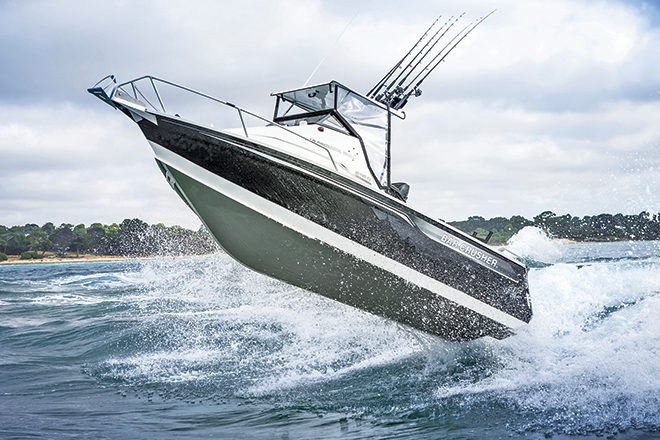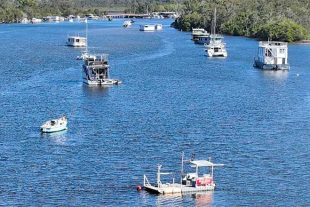Coming clean can be very expensive Nautilus
Whether on the road or on the water, remediating the damage you cause to things other than your car or boat can be frighteningly expensive. Nautilus
You prang your car and in the course of the accident take out a streetlight and some signage on a roundabout in the process. Who is going to reinstate that streetlight and the signage on the roundabout? You are!
And let’s not forget that you’ll also be paying for the wages and meal breaks for the ‘Stop Slow’ traffic official who will be attending during the replacement, wages for the truckie delivering the new streetlight, wages for the other driver delivering the new roundabout signage, the cost of hiring the crane to lift the new streetlight into place, the costs of the electricians who are going to turn off the power and then reinstate it, the rental of the digital traffic warning sign and so on.
It’s a similar situation when something goes awry on the water and you wind up perched atop Flinders Reef, north of Moreton Island. Forget about the boat for the moment – who’s going to pay for the environmental clean-up? You are!
And that will mean you are also picking up the tab for a virtual environmental swat team along with their specialist craft, possibly divers as well, a safety officer on site, hire of recovery gear and a host of other things. If environmental damage is caused, you will be charged for its rectification.
So, it is vitally important that you understand you are going to be held responsible for these costs and that you understand how these clean-up costs relate to your insurance.
Okay, first the easiest scenario to assess.
You’re on the reef, wreckage from your boat is stuck on the reef, you have leaked some pollutants into the area, and you have no insurance. It’s time to brace yourself for some serious bills as a string of various authorities start running the calculator on the clean-up costs. You will be presented with those bills and you will be held liable for them.
A different outcome. Nautilus
You’re back on that reef, wreckage is still jammed in the reef and those pollutants are pouring out, but this time you have boat insurance. Problems over? Maybe not.
Under some policies, these costs can be deducted from the final figure paid out to you.
For example, your vessel is insured for $60,000 when it comes unstuck on Flinders Reef. The cost to remove your wrecked hull comes to $20,000. You are expecting a $60,000 payout for the loss of your vessel, right?
Well, some companies will deduct the $20,000 clean-up cost from your $60,000 coverage, meaning you may receive a payout of only $40,000 to replace your $60,000 boat. But other companies don’t make that deduction.
They pay the additional clean-up bill as well as paying you the $60,000 for your boat.
So, when you read so-called ‘helpful’ advice in social media forums about how company A is much cheaper than everyone else when it comes to boat insurance, bear in mind that a $100 apparent savings could in fact cost $20,000 or more out of your own pocket. Nautilus
The bottom line here is that it is possible under some policies for you to get nothing back for your boat and to still be facing a residual debt for clean-up costs.
Under other policies, all of the costs would have been covered – the boat, its removal and the clean-up bill.
Marine insurance is an issue for specialists. It’s not for the companies that dabble in marine insurance so they can sweep up all of your insurance business into one deal.
The obvious question therefore is do you know whether these marine clean-up costs are included or deducted under your policy? If you don’t know, ask now and take the appropriate action in accordance with the answer. What is covered and what may not be covered will be interpreted in accord with the terms of insurance as defined in your insurance policy’s product disclosure statement.
Similarly, any special conditions and excesses should always be explained clearly in your insurance policy’s PDS.
If you need further information, you can contact Nautilus Marine Insurance on 1300 780 533 for any boat insurance requirements.









